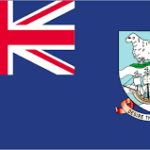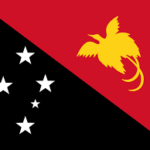Fees for registering Trinidad and Tobago trademarks
Service Process
Trademark registration time
Trinidad and Tobago is located in the southern Caribbean Sea of Central America, adjacent to the waters off Venezuela. It consists of Trinidad Island, Tobago Island, and 21 smaller islands. In 1889, the two islands became unified British colonies. In 1956, internal autonomy was implemented, independence was declared on August 31, 1962, and a republic was established on August 1, 1976; Trinidad and Tobago is still a member of the Commonwealth.
The current trademark regulations in Trinidad and Tobago are mainly based on the Trademark Act No. 8 promulgated on June 12, 2015, and the Intellectual Property Office is responsible for the unified management of trademark affairs. Trinidad and Tobago is a party to the Trademark Law Treaty, the WIPO Convention, the Paris Convention, the TRIPS Agreement, and the Nice Agreement, and its official language is English.
Trademark Registration Process
Applicants can apply for "single country registration" locally. If the applicant does not reside in Trinidad and Tobago, they must entrust a local specialized agent to handle it. The basic materials required for trademark application are:
1. Trademark design;
2. Specific product items;
3. Name and address of the applicant;
4. Power of attorney;
5.If priority is declared, priority proof documents and corresponding English translations must be provided.
Trinidad and Tobago adopts the Nice Classification 11th edition and accepts applications for multiple categories in one form. The objection period is within 3 months from the date of the initial examination announcement; In a smooth situation, trademark registration generally takes 6 months to 1 year, and a registration certificate will be issued after approval. The trademark registration in Trinidad and Tobago is valid for 10 years from the date of registration; Renewal can be processed within 6 months before the expiration date, with a grace period of 6 months; The renewal is valid for 10 years. According to Article 26 of the Trademark Law, Trinidad and Tobago accepts series trademark applications.
Trademark registration materials
Article 23 of the Trademark Law provides for the revocation and invalidation of registered trademarks. If a trademark is not actually used for five consecutive years after registration without justifiable reasons, it becomes a generic name. If the trademark causes confusion among the public about the quality and origin of the trademark/service, or conflicts with prior rights, interested parties may apply for revocation or invalidation of the trademark.
Start Your Trademark Business
Start Registration

do not understand? Contact us

do not understand? Contact us

do not understand? Contact us

do not understand? Contact us


 Trinidad and Tobago
Trinidad and Tobago